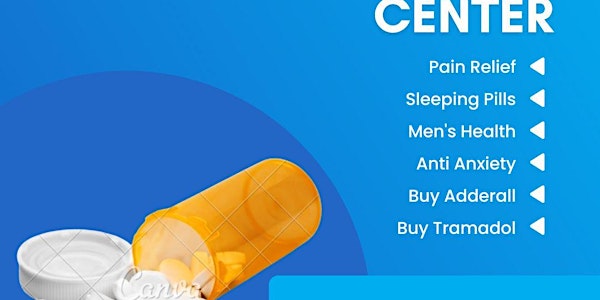
Buy Xanax Alprazolam Online same day medication deliver in US
When Xanax/alprazolam was introduced in the late 80s, there was only a 0.5mg and 1mg. The 1mg was for normal adults, 0.5mg for the sensitive
Date and time
Location
Online
About this event
- 2 hours
Order here https://sparklifeenergy.com/anti-anxiety/buy-xanax-online/
When Xanax/alprazolam was introduced in the late 80s, there was only a 0.5mg and 1mg. The 1mg was for normal adults, 0.5mg for the sensitive or elderly. The recommended dose was 1 bid, 1–2 hs. Within a few years there was a 0.25mg and 2mg for the very sensitive and insensitive, respectively, with the same directions. I have seen people take 10mg/day regularly, but it’s rare that any higher than that adds much (although people have tried). Unfortunately, the trend over the years has been to minimize the dose to the point of ineffectiveness - 0.5mg or even 0.25mg. More or less, this works only if you don’t need it, anyway; we call that a “homeopathic” dose.IMHO, this has been done intentionally in order to “prescribe, but not prescribe” the drug, IOW, to try to prescribe it in a way that doesn’t work for the purpose of bypassing it in favor of less controversial drugs (SSRIs, SSNRIs, even so-called “atypical” antipsychotics and anticonvulsants). Often, when underdosed, patients either continue self-medication with other drugs or alcohol or increase the dose on their own to achieve efficacy, but then are accused of overusing/abusing and cut off, even if they were doing well. Sub-therapeutic prescribing sabotages effective treatment with any drug; it is very common with drugs that are considered abused. Effective prescribing requires an effective dose. Unfortunately, it’s not uncommon for patients who are doing well on an effective dose to be told that their dose is “excessive” or even “dangerous”. I can’t tell you how many patients I have seen who have achieved control of their anxiety, slept well regularly for the first time in their lives, stopped drinking excessively (usually entirely), discontinued other drug abuse (especially opioids), and have gotten their lives back on track, only to be told that they are now “an addict”. This is, like a lot of medicine, a focus on process rather than outcome - you can’t be better with the “wrong” treatment.Should patients stay at the lower dose and initially do well, but later self-titrate to an effective dose, this is misconstrued as evidence of the development of tolerance and portrayed as inevitable. Likewise recurrence of anxiety with cessation is cited as evidence of withdrawal rather than re-emergence of the original problem. Others will certainly dispute this, but I have not seen a single case of actual benzodiazepine tolerance developing with chronic use in over 35 years of practice. I’ve seen them not work well enough, and I’ve seen situational exacerbation of anxiety that requires a temporary increase in dosage or augmentation with other drugs, but I have never seen tolererance.Unlike others who have answered, I consider anxiety to be a genetic physical condition that cannot be changed. The vast majority of patients have a significant family history of anxiety, often including substance abuse, and a long personal history of both behavioral and physical symptoms. They very often come with extensive evaluations and multiple diagnoses - daily tension headaches with a negative MRI that have been called migraines because of their severity, actual migraines of unusual frequency, neck pain with hypertenderness yet attributed to “bulging” discs on MRI, chest pain in a young patient without risk factors, frequent ER visits for exacerbations of mild or non-existent asthma, intractible GERD, uncontrollable IBS, chronic fatigue 2nd to sever insomnia, and more. Many have 8–10 diagnoses. Almost all have had very extensive evaluations, no objective findings, and failed every treatment tried. Most medications that have been at all effective have been so only to the extent that they have caused sedation and impairment, which is ironically, the reason most often cited as the danger of benzodiazepines.The simple question I ask is, “How many times in your life have you been told, ‘You just need to learn to relax?’” The answer often is, “I’ve been told that every day if my life”, sometimes with “by everyone I’ve met within 10 minutes since I was 12 years old.” Often there is a history of ineffective treatment of ADD/ADHD. While certainly you can learn to identify anxiety and develop some coping skills, this just doesn’t work in much more than mild to moderate situations; I tell patients, “You never learn not to be anxious; you may be able to learn to manage it.” Our failure to recognize and effectively treat anxiety is the cause of our continued severe alcohol and drug problems. Depression is often a longterm outcome of anxiety, not a primary problem itself it fascinates (and frustrates) me that, while we have spent decades destigmatizing depression as a chronic condition beyond the patient’s control and for which he/she bears no responsibility and requires chronic medication, anxiety is routinely characterized as a failure of patient effort to change and undeserving of effective treatment, as though doing so sabotages “therapy”, which rarely works and is beyond the motivation, finances, and capabilities of all but a few patients. But let’s keep pretending….